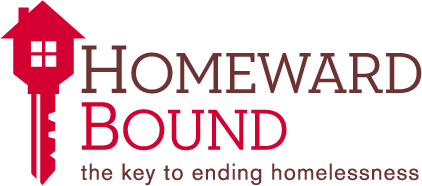Homeward Bound provided “divine intervention”.

In 2016, a diagnosis of chronic obstructive pulmonary disease, which led to numerous and extended hospital visits, caused Paul to lose his job. Not long after losing employment, and stuck with a high number of medical bills he could not pay, Paul began sleeping in his car – the weeks turned into months, and then years.
During his time outdoors, Paul made several attempts to apply for housing on his own. He filled out applications with the City of Asheville for Section 8 housing, but with extremely long waiting lists, nothing came through.
“Living in your car is hard,” Paul says. “If you want to be safe, you have to park where your car is visible to the public. Once I was parked on Leicester Highway and two guys tried to steal my car. I had to fight them to protect my car and myself. Violence isn’t good, but living on the street, it’s sometimes necessary. Also, in sleeping in your car, you get leg cramps, and you use up all your gas moving from place to place to avoid getting caught by the police. The ADP is good at their job. They find you fast.”
Paul preferred to park his car in an Ingles parking lot where the manager turned a blind eye to his presence.
“I was so appreciative of the manager who let me stay there that I would go around the parking lot and pick up trash for him. I wanted him to know I was grateful. There was also a lady who worked in the Ingles deli who would bring me a hot meal every day,” he says. “One day she found me in my car sick with pneumonia. She knocked on my window and when I didn’t answer, she called 911. She saved my life.”
Living unhoused made both Paul’s health condition and his ability to secure medication even more difficult. “I used alcohol to feel better,” he admits. It was a temporary fix that often made him feel worse later on.
Then COVID hit.
“During COVID I was afraid for my life. I couldn’t go to any of the food pantries because I didn’t want to be around too many people. There weren’t enough boundaries. With my health problems, I couldn’t get sick, I just wouldn’t survive.”
It wasn’t until the creation of Homeward Bound’s Civilian Rapid Rehousing program that Paul was finally connected to his Homeward Bound case manager Flint.
“We found a house really fast,” Paul says. “And it was the exact house I wanted. I couldn’t believe it. It was like divine intervention – no question about that.”
Paul has been housed less than a month and already his health has improved.
“It doesn’t make that sound when I breathe anymore. I’m getting better because I can take care of myself. I can cook my own food, and I sleep better. I’m not scared all the time.”
Flint and Paul will continue to work together to make sure Paul’s transition to his new home is successful. Flint will help Paul monitor his health, his medication, and his bills for up to nine months until Paul is able to live without support.
